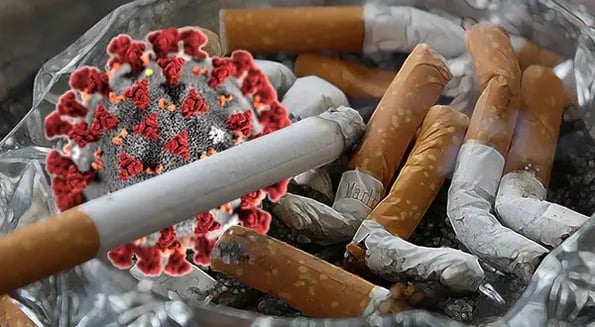Put this in your pipe and smoke it: The cure to COVID-19 could come from the same stuff that fills up a Camel cigarette.

Yes, we’re serious (and no… we haven’t been smoking anything).
British American Tobacco (BAT) and Philip Morris — the world’s 2 largest tobacco giants — have begun developing coronavirus vaccines out of tobacco leaves.
It may sound ironic…
Especially because early studies link smoking and vaping with an increased risk of severe coronavirus infection. But units of BAT and Philip Morris actually have experience in biopharma tech.
Here’s what they’re working on:
- Kentucky BioProcessing, owned by BAT, cloned part of COVID-19’s genetic sequence to create antigens (substances that jump-start the body’s immune response to the virus), and now it’s inserting them into tobacco plants so they can be used to create a vaccine.
- Medicago, part-owned by Philip Morris, is growing virus-like particles in crops related to tobacco to create its own plant-based vaccine.
According to BAT, using tobacco could enable vaccine production in about 6 weeks — far less time than conventional methods, which take months.
But wait… why do cig-makers have biopharma divisions again?
Hint: It’s not just because Uncle Phil Morris is turning over a new tobacco leaf and focusing on public health…
Instead, Tobacco Titans have been buying biopharma companies since the start of the vaping boom in the early 2010s. Vape nation boomed from 7m people in 2011 to 41m in 2018, but the Trump administration cracked down this year on flavored pods.
BAT bought Kentucky BioProcessing in 2014 not to develop drugs, but for smoking alternatives. Now Big Cig’s biopharma arms are taking a break to fight the pandemic.
And it ain’t the first time they’ve swapped cigs for safety masks
In 2014 — the year it was acquired by BAT — Kentucky BioProcessing was involved in developing a drug called ZMapp that used tobacco leaves to fight the ebola virus.
ZMapp never made it to the market. But this time, BAT hopes its COVID-19 cure will make more of an impact.
BAT is already running pre-clinical trials and says it could produce 1-3m doses per week by June (if it gets approval); Philip Morris hopes to begin human trials this summer.

